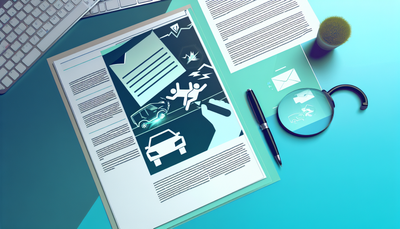The Impact of Filing a Car Insurance Claim on Your Premiums

The Impact of Filing a Car Insurance Claim on Your Premiums
Car accidents happen, and when they do, filing an insurance claim is often necessary. However, many drivers worry about the insurance impact of making a claim, particularly whether it will lead to a premium increase. Understanding how claims affect your rates can help you make smarter decisions about when to file and when to pay out of pocket.
How Filing a Claim Affects Your Premiums
When you file a claim, your insurance company assesses the situation to determine if your premium should increase. Several factors come into play, including the type of claim, fault determination, and your claims history.
1. Fault vs. No-Fault Claims
If you are found at fault for an accident, your insurance provider is more likely to raise your premium. On the other hand, if another driver was responsible, your rates may not increase, although some insurers still adjust premiums after any claim.
2. Claim Severity and Frequency
The more expensive the claim, the greater the likelihood of a premium increase. Additionally, if you have multiple claims within a few years, insurers may see you as high-risk, leading to even higher rate hikes.
3. Comprehensive vs. Collision Claims
- Collision claims (e.g., accidents where you hit another vehicle or object) tend to have a larger impact on premiums.
- Comprehensive claims (e.g., theft, vandalism, or weather damage) may have less effect, since they’re often beyond a driver's control.
When Should You Avoid Filing a Claim?
Filing a claim isn’t always the best financial decision. Here are some situations where holding off might be wiser:
- Minor Damage: If repair costs are close to or lower than your deductible, paying out of pocket prevents an unnecessary insurance impact.
- First-Time Claim: If you've had a clean record for years, consider whether a small claim risks a future premium increase.
- Accident Forgiveness: Some insurers offer accident forgiveness programs, but using this benefit strategically can help minimize future costs.
How Much Will Your Rates Increase?
The actual premium increase varies based on your insurer, driving history, and claim details. On average, an at-fault accident can raise rates by 20% to 50%, while a minor comprehensive claim might have little to no effect. The impact typically lasts for three to five years before gradually decreasing.
Conclusion
While insurance exists to protect you financially, each claim comes with potential claim consequences. By weighing the cost of repairs against possible rate hikes, you can decide whether filing a claim is the right move. In some cases, paying out of pocket might save you money in the long run.
Understanding how claims affect your premiums empowers you to make informed decisions and keep your insurance costs manageable.








